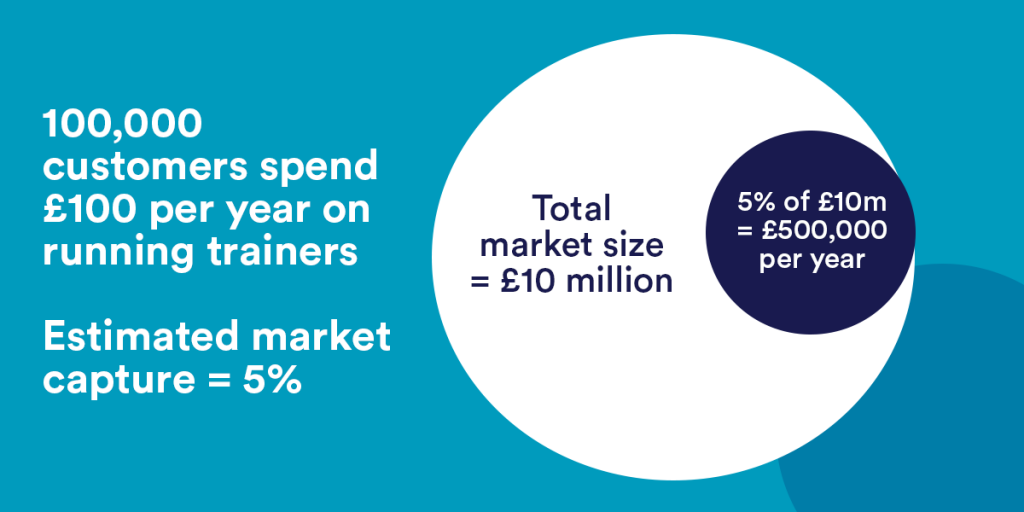
April 13, 2018, by Carla
Does Your Business Plan Pass These Five Checks?
By Stuart McClure, co-founder of LovetheSales.com – connect with him on LinkedIn
Having an idea for a new business can be exciting. There might be an expectation that this idea is a sure-fire multi-million-pound business waiting to happen, but if you don’t execute the idea well, you’re not going to get far.
Each year 650,000 businesses are started in the UK, however a staggering 90% of those companies will fail within the first year. It’s tough to survive.
Making your business a life-changing success requires a lot of hard work, but getting things right from the outset will give you a huge advantage. Here, I list five big ticket considerations that will help you determine whether your idea is something worth pursuing.
These points are the rudimentary basis of strategy that ensure your business can grow, as well as having elements that potential investors will want to see if you’re considering raising money.
1. Market size
It’s key to understand the size of the market you’re considering launching your business into. If it’s an established market, you need to know there is room for you to move into it. If it’s a new market, you need to know it’s big enough to develop a sustainable business.
Start off with a top down analysis of the market. This is a simple way to measure the potential market size. A typical top-down analysis usually contains:
- How many target customers are there in the market?
- How much will they spend in a year on products or services like mine?
- What percentage of them are likely to buy my product or service?
For example:

This isn’t the most in-depth assessment of market size, but it will give you and future investors a sense of where your business can get to.
It’s important to be as unbiased and objective as possible with these figures. After such an analysis, it will be easier to set goals to hit in your timeline.
2. Scalability
A successful business needs to be able to scale effectively in order to service a fast-growing customer base.
If I run a handmade cake business and my customer base grows rapidly, how do I keep up production? How do I mass produce? How do I supply the extra demand for my products?
If I want to take my business to the next level, what do I need to think about? Do I need a factory, warehouse, and logistics channels? How will this affect my costs and what capital do I need to raise to deliver this?
Top tip: When thinking about your business model, make it lean. This means building a business plan that has low initial staff costs, high automation and high profit margins. The most scalable businesses are ones that don’t need a lot of running costs from the get go.
3. Capital
If you know what operations you need to put in place in order to scale, you’ll have a good idea of what funds you need to raise to get it off the ground.
When looking for investment, you need to be sure you raise the right amount – too little and you will have problems growing or hitting your targets, too much and you might end up selling more of your company than you wanted to.
You need to be able to demonstrate that with the invested money you will be able to deliver certain milestones, and a working product, that will lead to customers spending money with you.
Critically, you need to understand the underlying unit economics of your business. How much is it going to cost to acquire a customer? How much will you make from that customer? What is the profit per sale, and how many sales do you need to make to cover your operating costs?
Showing investors a clear path to revenue is essential. You also need consider how much of the business you’re willing to part with, as this will help you to negotiate a valuation with a potential investor.
4. Uniqueness
It’s important to have a business that’s offering something different and better than the competition. If there are already companies operating successfully in this market, then what is unique about your product or service?
If you have a unique idea, it’s worth analysing why it hasn’t been done before. Maybe it’s because the technology wasn’t there previously, or you truly have an innovative idea; but maybe it’s because it’s not feasible or profitable to do in practice.
It could be, however, that your idea is so unique and innovative that it creates a brand new market within a competitive space. Airbnb is a perfect example of an innovative idea that created a whole new digital market of hoteliers and travel agents.
Lastly, you need to think about what’s stopping someone with more resources, coming in and executing your idea better. You need think about how you’ll create barriers to entry and make your business defensible.
For example, these are a few very effective barriers to entry:
- Securing exclusive contracts with suppliers
- Patenting your product
- Securing large funding for fast growth
5. Execution
The execution of an idea can determine whether your business succeeds or fails. The difference between similar products can be in the execution of getting them to market and retaining customers.
For example, Uber; Gett & Cabbie offer the same hail-a-cab service on paper, however the execution of Uber was far superior to its competition. Uber’s functionality, ease of use of the app and word of mouth tactics allowed them to grow exponentially faster than the competition.
Do you have the knowledge to execute your idea? Or would you need to bring in people with a better understanding of the market?
Final thoughts
When it comes down to starting a business, there are a million and one factors to consider.
If you focus on these core checks: Is your idea unique enough to compete? Is it scalable? Is there a big enough market? And do you have a plan of execution? You will stand a much higher chance of success.
Remember, there’s no need to go it alone. There are a range of tools available through modules with the Haydn Green Institute for Innovation and Entrepreneurship, as well as membership with the Ingenuity Lab, that can support the development of your business plan. Facilities, workshops and seminars are available to students and alumni alike, and can provide you with the support you need to transition from student to entrepreneur extraordinaire! Find a full list of HGI modules here or find out about joining the Ingenuity Lab here.
No comments yet, fill out a comment to be the first

Leave a Reply